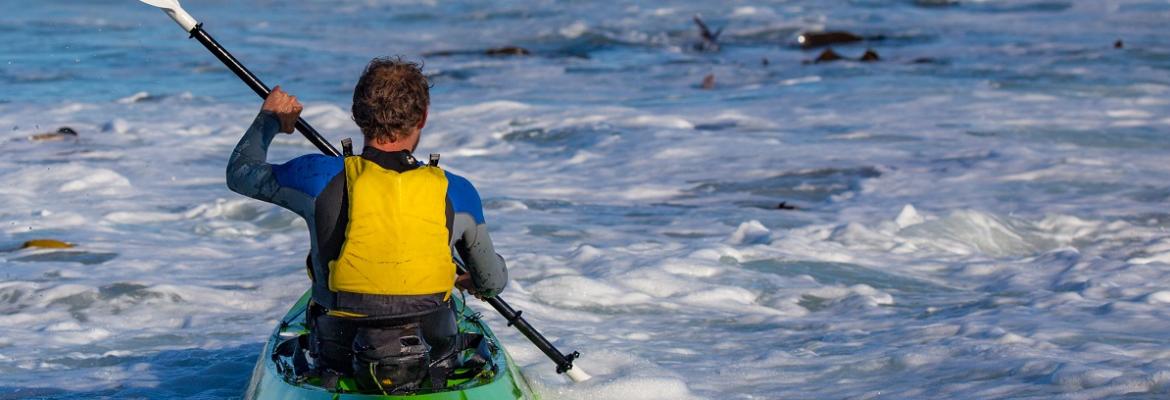
Carrying a means of calling for help when out on the water is standard for most Victorian boaters and many paddlers, but too many think a mobile phone and/or hand-held radio are sufficient.
'A GPS-enabled emergency position indicating radio beacon (EPIRB) registered with AMSA or a personal locator beacon are your best bet for getting help if things go wrong,' said MSV Safety Director Rachel Gualano.
'Mobile phones or hand-held radios might not work when wet and touchscreens may be unresponsive to cold wet fingers.
'It costs nothing to register a beacon with AMSA and it might be the difference between life and death. While you're only required to carry an approved 406 MHz EPIRB when more than two nautical miles from the coast, MSV recommends taking one every time you're out on the water.'
For more information, visit the AMSA Beacons website.
Alone and in the water
Victorian boater James says he was tumbled out of his kayak by a regulation wave that caught him by surprise.
'Once in the water, it was hard to think straight and, as I got colder, I found that my fingers didn't work so well. I realised that if I was going to set off my beacon it had better be soon.
'I started to think about my partner and how worried she'd be as I was well overdue by that time. Looking back, the right thing to do would have been to set off the beacon as early as possible.
James did set off his distress beacon and a helicopter was dispatched.
'Based on my experience, my advice to you is always carry a distress beacon', James said.
'Carry a distress beacon' is a key message in MSV's new boating safety campaign 'Prepare to survive: Know the five'.
Watch James tell his story and get more advice from AMSA and Maritime Safety Victoria.
Prepare to survive: Know the five
- Know the weather
- Practise getting back on
- Carry a distress beacon
- Lock in a buddy plan
- Wear a lifejacket.
As Ms Gualano explained, one of the greatest risks to boaters and paddlers is unexpectedly entering the water, and then not being able to get back onto their vessel or to call for help.
'Our research shows that many boaters and paddlers tend to underestimate the risks and overestimate their capabilities.
'The 37 per cent of paddlers and 31 per cent of coastal boaters who reported that, on their last outing they did not carry any equipment to help them get back onto their craft, really needed to have a distress beacon with them.
'No matter how experienced you are, things can still happen that are outside your control.
'MSV's 'Prepare to survive' campaign brings home the importance of trip preparation, so that if something does happen on the water, boaters have the absolute best chance of survival.'